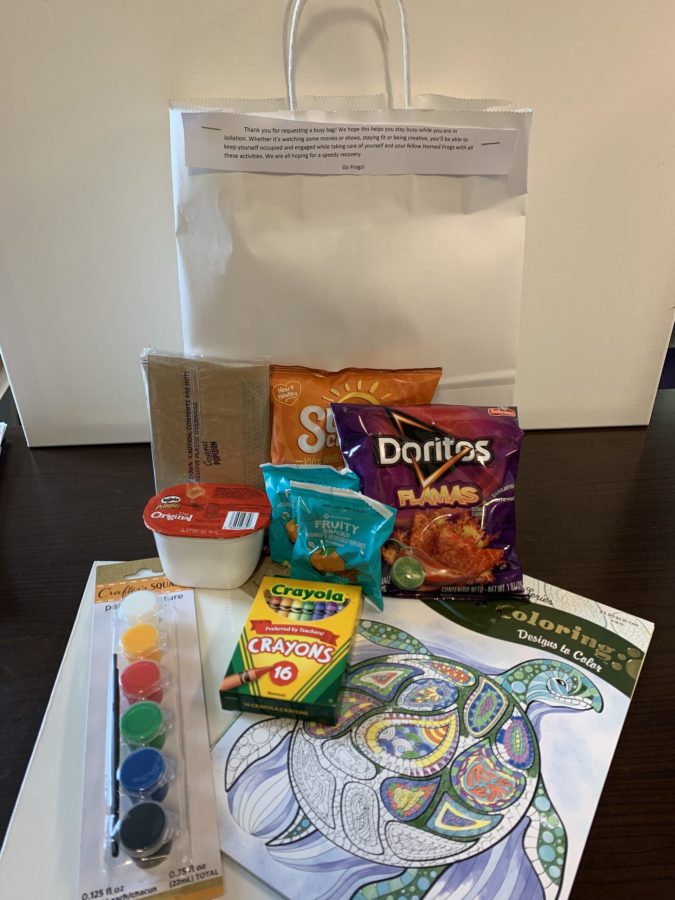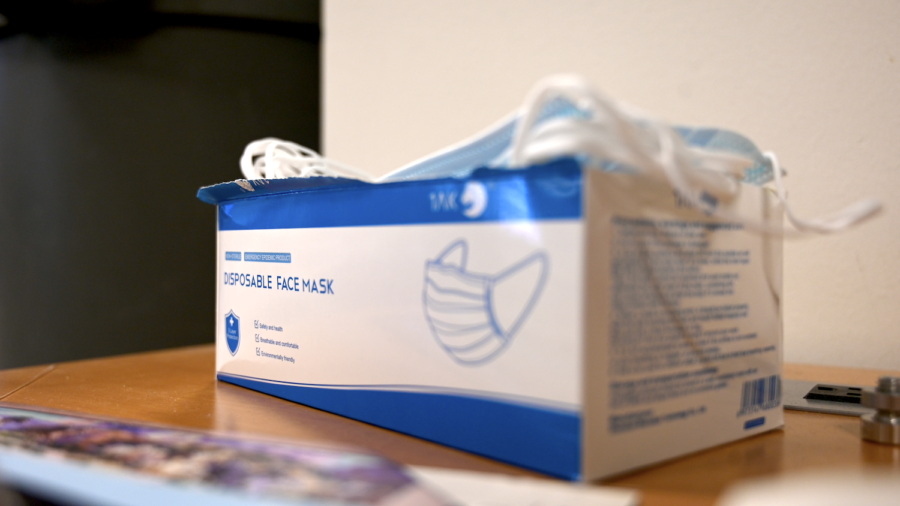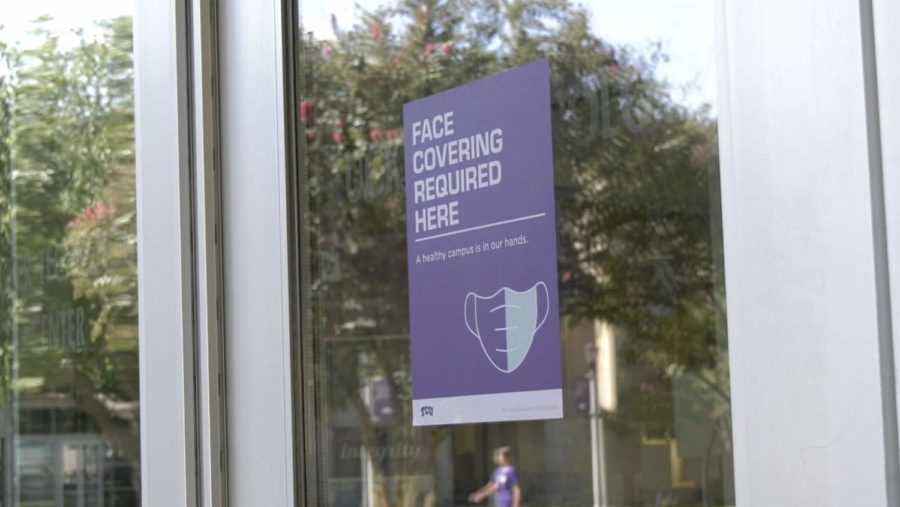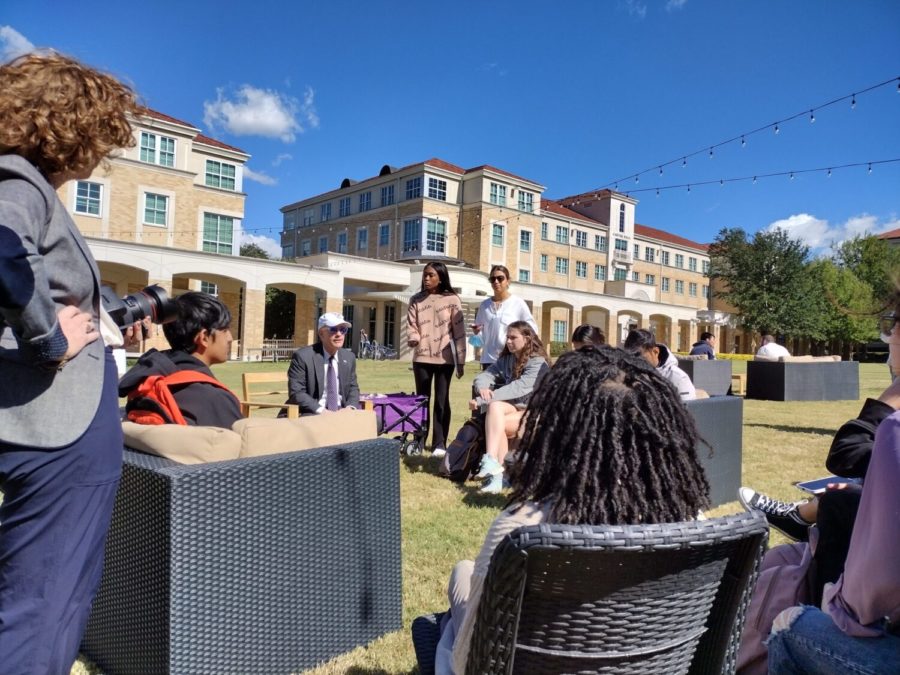As TCU’s student COVID-19 campus cases climbed late last month and in the early days of September, hall directors realized they needed to do more than just drop off meals to students in isolation.
Hoping to stave off boredom, they decided to create “busy bags” filled with things to keep students occupied. Reece Harty and Danielle Hoefeld spearheaded the operation, worried that some students were struggling in isolation.
“When we were told more students were moving to isolation we were like, ‘We really got to think this through. What can we do?’” said Reece Harty, the hall director of GrandMarc and Village East Apartments. He and Danielle Hoefeld, the hall director of Colby Hall, led the effort.
Maurice Mull, the hall director of King and Wright Hall and Ali Moss of Waits Hall, stepped in to create a socially distant assembly line where they filled bags.
They stuffed paper bags with snacks, puzzles, coloring books, word searches, Sudoku, Play-Doh and other items.
“I know that this can be a very difficult time for the students who are in isolation, so giving them something to pass the time is a great idea,” said Wimberly Imani, the assistant director of residence life.
Read more: TCU has isolation rooms for students with COVID-19
At this month’s peak, 267 students were isolated, or separated from others, after testing positive for COVID-19.
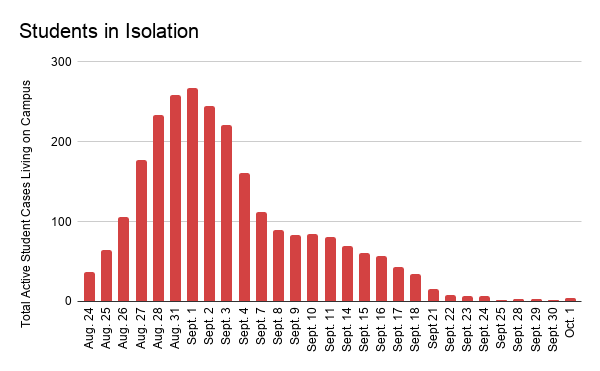
In addition to the busy bag, Harty, Hoefeld and Moss put together a seven-page guide of isolation activities. The digital guide includes Netflix and Hulu recommendations, podcast recommendations, home workouts and activities to help students engage, relax and unwind. It is sent in the initial email the care coordinator sends to the student.
“Some of my (isolated) residents feel fine, and they are going stir crazy, so this guide helps with that,” said Harty.
Assembling the “busy bags”
“We really enjoyed finding Play-Doh and puzzles and canvases for people to paint on and Sudokus and word searches,” said Harty. “You know, kind of those fun things your mom or your aunt would get you when you’re going to camp.”
Hoefeld said they grabbed things they hoped would distract students.
After they shopped, Mull and Moss helped them assemble the bags. Once the bags were ready to go, Hoefeld sent out a request form to students in isolation.
Within two minutes of sending an email to students asking if they wanted a bag, there were 16 requests, Hoefeld said.
“It really shows the importance of how people are really wanting to do things while they’re in isolation,” said Harty. “A lot of times when we go and deliver them people are like, ‘oh my gosh this is perfect,’ so that’s really nice to get feedback.”
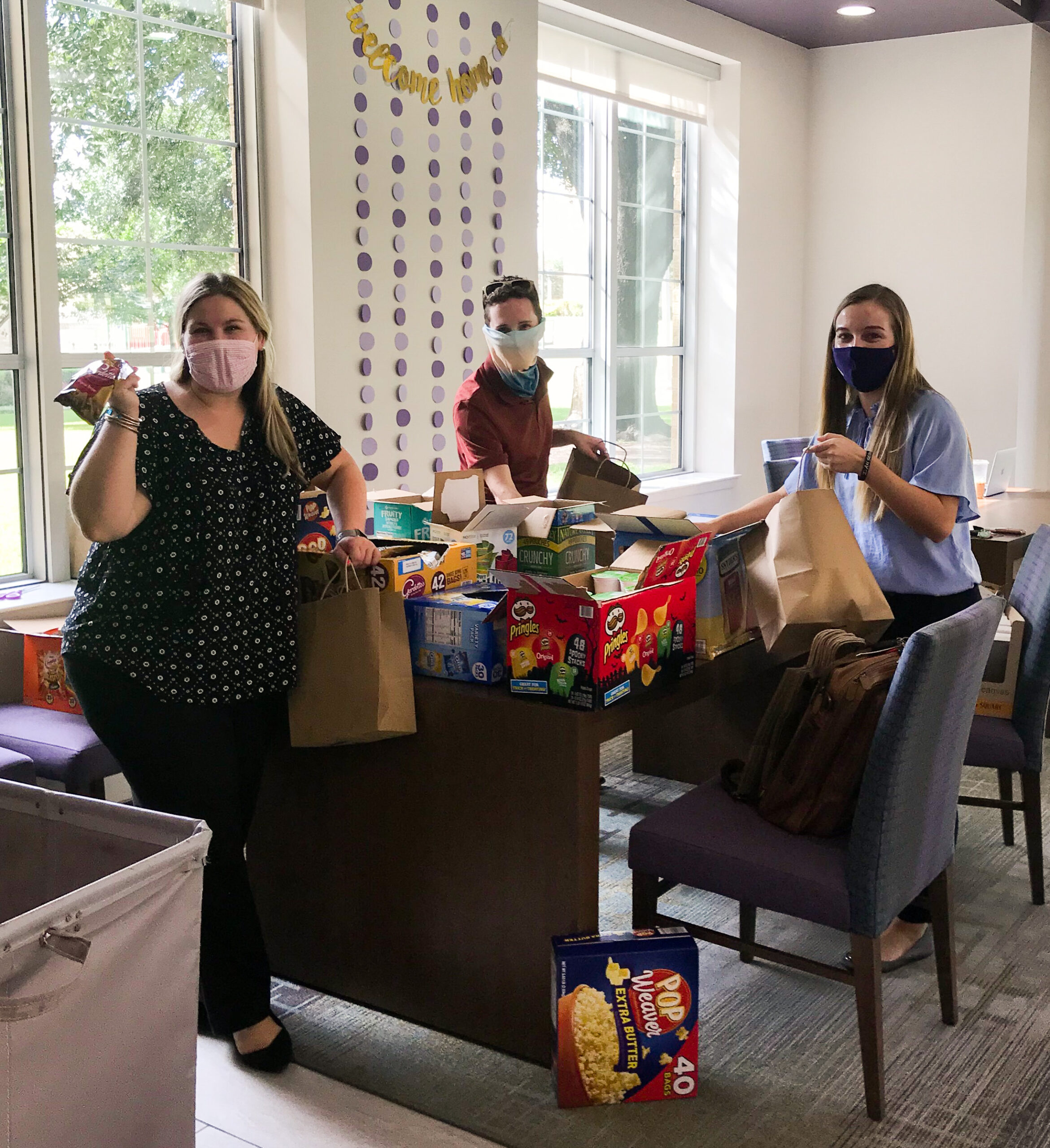
Harty said he likes to think of the bags as mystery bags because you never know what you’re going to get.
Some have a paint kit, Play-Doh and a crossword puzzle, while others have Sudoku, an actual puzzle and a coloring book with crayons. The hall directors said they try to give students different options, so if someone is more of a creative person, or if someone is more analytical, they will have a little bit of both in each bag. The bags also contain snacks.
“It was great because they had snacks in them, and I was running low on snacks,” said Tim Dudley, a junior marketing management major, who ordered a bag while in isolation. “I didn’t have much time to do any of the other activities – Play-Doh, adult coloring book and a puzzle – because I still had a bunch of school work to do.”
Before the idea of busy bags was born, Harty gave what he called a “mid-week-sweet treat” to students in isolation. He would get students’ orders for an Insomnia cookie and drop it off at their isolation space on Wednesday. He said he did this to give the students something to look forward to.
“We needed to do something else where they could get a little more stimulus,” said Harty. “I mean, yes, you can get energy from a late-night cookie but not as much from a busy bag.”
What isolation means for students
Students are also contacted by a care coordinator and an assistant care coordinator if they test positive for COVID-19. Care coordinators are in charge of contacting and working with students who test positive for COVID-19, to conduct contact tracing and offer support services while in isolation.
Care coordinators work with students who don’t have a single room with a bathroom or an apartment where there is the exclusive use of a bathroom to discuss relocation, according to the TCU Connect Campus guide.
In this case, hall directors pick up the student’s key for their isolation space and deliver a care bag filled with Gatorade, water, Sprite, crackers, hand sanitizer and peanut butter to space before the move.
All students who have to isolate receive an email outlining isolation protocol and a resource guide from the care coordinator.
The busy bag and resource guide is something the isolated student receives in addition to the care bag and resource guide provided by the care coordinator.
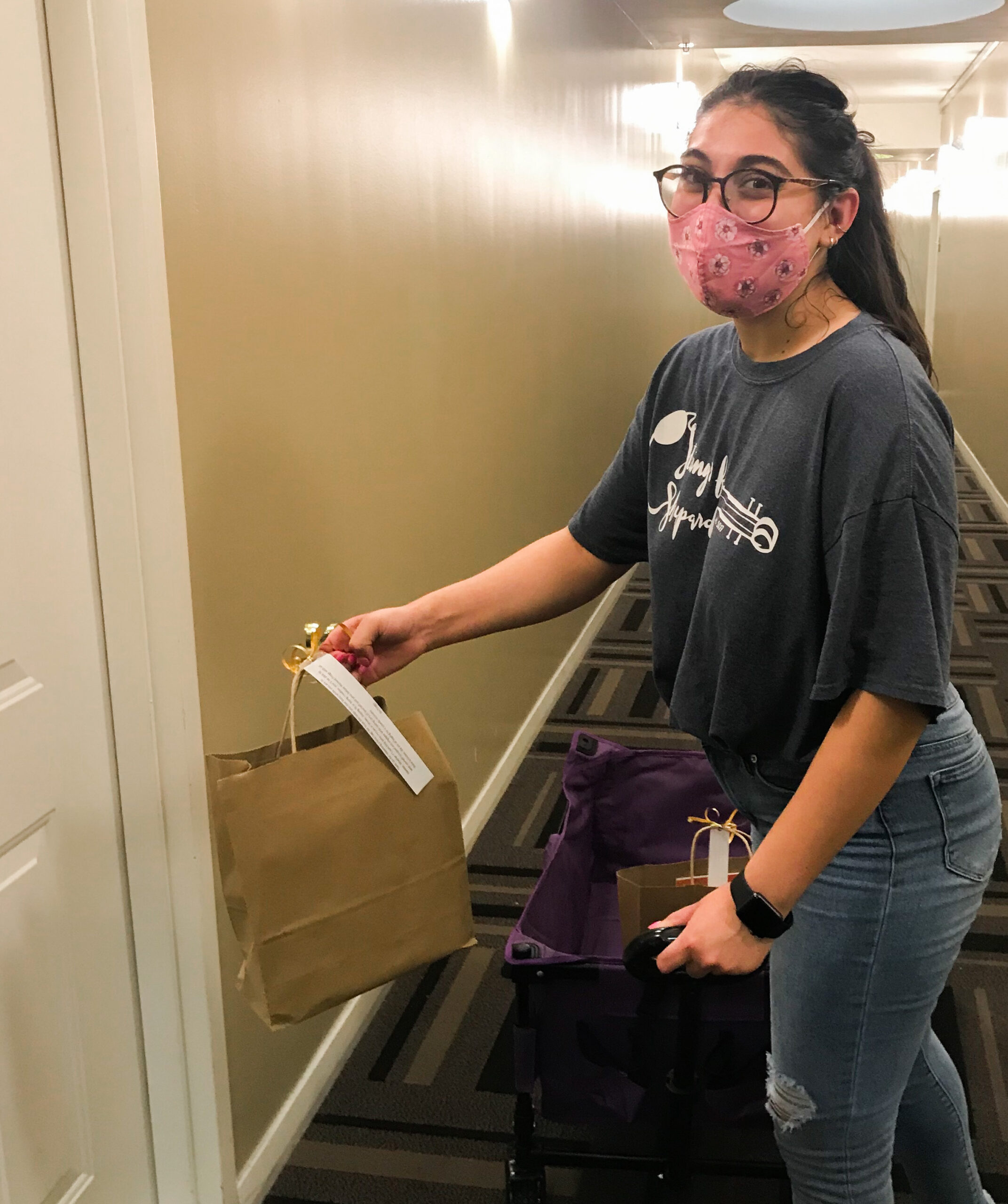
“Everyone has been really on the front line and helping support people however they can,” said Harty, referring to his fellow hall directors.
Hall directors support students with intentionality.
“Our group of hall directors is very intentional and really wants to make sure that when we are supporting our students, they know it’s coming from a place of care and support and wanting the best for them.”
The hall directors are currently working on other virtual program ideas to keep isolated students involved.
“They have constantly stepped up to the challenge and done it with a smile,” Imani said. “They are doing things outside of their normal job responsibility but know that it is serving our students well, so they continue to give it their all.”

